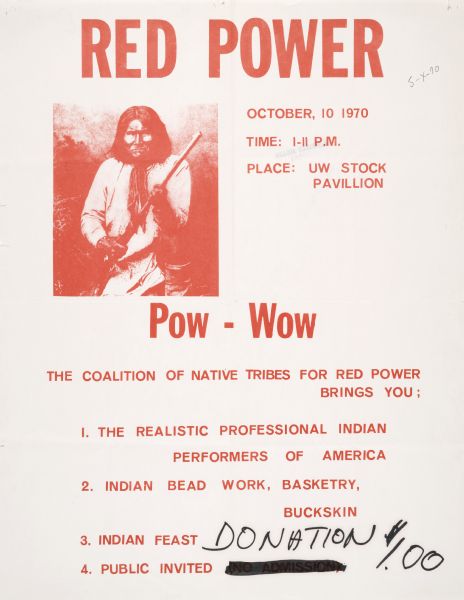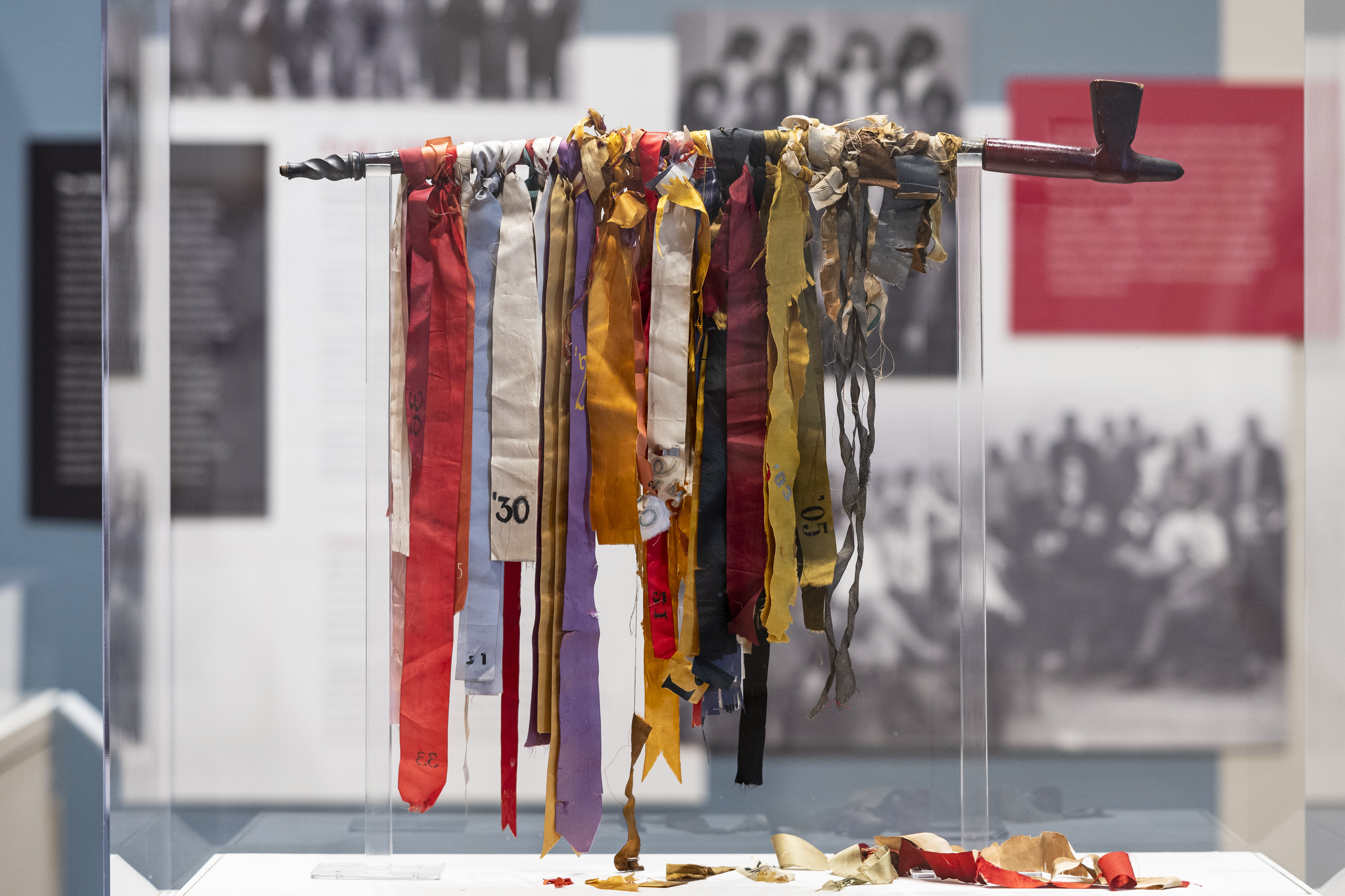Greetings from the Public History Project! We know, it’s a little later in the month than usual for our newsletter — we’ve had a packed schedule celebrating Native November on campus and continuing to share Sifting & Reckoning, our exhibit at the Chazen Museum of Art, with students, faculty, staff and community members. But never fear, we’re here now with plenty of fresh project updates, research, archival finds, book recommendations and more!
The University of Wisconsin–Madison’s Public History Project is a multi-year effort to uncover and give voice to those who experienced, challenged, and overcame prejudice on campus. As always, if you have a story to share, an event you think should be researched, or a person you think has been overlooked, please email us at publichistoryproject@wisc.edu.
|
|
|
|
|
|
For generations, American Indian students have nurtured community at UW–Madison. Starting in the autumn of the 1970s, they began an initiative to create an academic home where students, staff, and faculty might gather in the service of Native nations. It eventually became the American Indian Studies Program that we know today.
In celebration of its first 50 years, AIS has created a rich website chronicling its early history, its work over the last five decades and the stories of those who made it a reality.
Check out research, photos, documents and oral histories here!
|

|
Flyer advertising a pow-wow hosted by the Coalition of Native Tribes for Red Power, the group that was instrumental in the founding of the American Indian Studies program, Wisconsin Historical Society
|
|
|
|
Haven’t made it to the Chazen Museum of Art yet to see Sifting & Reckoning? There’s still time! The exhibition is on view through December 23, 2022.
It’s free and open to the public during museum hours — Monday-Friday 10am-7pm and Saturday-Sunday 11am-5pm.
You can also view it anytime online.
|
|
|
|
We’re excited to introduce one of our student researchers, Keely Mruk! Keely is a first year PhD student at UW-Madison in the History of Science, Medicine, and Technology program. Her research interests center on visibility, care practices, and the built environment. Her current work focuses on the relationship between animal research and nuclear weapons testing in the United States during the 1950s. At the University of Utah, where she completed a masters in U.S. history, her work focused on the design of clinics during the HIV/AIDS epidemic.
A Georgia native, Keely misses snowless winters and Waffle House. Her comfort movie is Oceans 11, and she does a crossword puzzle every day.
|
|
|
|

|
This month from the archives, we have one of the most compelling historical objects on display at the Sifting & Reckoning exhibition: the Pipe of Peace.
Between the 1890s and the 1930s, the Pipe of Peace ceremony drew large crowds of students to Library Mall during commencement week. In this parody of Native American life, white students dressed in “Indian” costumes and passed an elaborate pipe decorated with the ribbons of each graduating class.
Yet during this era, no Native Americans graduated from the university and only a few briefly attended. On reservations during these same years, Native Americans were prosecuted by federal authorities for carrying out their own sacred traditions, and children were stolen from their parents and forcibly reeducated in an effort to strip them of their cultures and languages. Meanwhile, white students here “played Indian,” appropriating misconceived ideas about Native Americans. The Pipe of Peace was such a foundational part of campus culture that it can still be seen today in decorative features on the doors of the Memorial Union.
|
|
|
|
Each month, we like to share one of the many (many… many… ) books that have helped the Public History Project’s research.
In celebration of Native November, we’re highlighting a decades old classic that feels like it could have been written this year. Custer Died for Your Sins: An Indian Manifesto by Standing Rock Sioux activist, professor, and attorney Vine Deloria Jr. touches on everything from U.S. race relations and federal bureaucracies to Christian churches and social scientists in essays that are both profound and humorous.
Originally published in 1969, the collection offers insights on American Indian history, Native American culture, and context for minority protest movements that still resonate today.
|
|
|
|
|
|
Want to get a behind-the-scenes look at the Public History Project and the work that went into creating the Sifting & Reckoning exhibit? Join the Wisconsin Alumni Association for a Wisconsin Idea Spotlight event featuring PHP Director Kacie Lucchini Butcher and Assistant Director Taylor L. Bailey in conversation with African American Studies Professor Christy Clark-Pujara and WFAA’s Jessica Arp.
The event includes an opening reception with refreshments, a Q&A session and a closing reception. Free and open to the public with registration.
Tuesday, December 6, 2022 – 4pm-7pm
One Alumni Place
|
|
|
|
Each month the Project's Director, Kacie Lucchini Butcher will share a book, podcast, movie, quote, or something else she think has been adding to the PHP. We're calling it "From The Desk of KLB"
This month From The Desk of KLB, Firekeeper's Daughter, the multi-award-winning debut YA novel by Angeline Boulley. Part crime thriller, part coming of age story, part exploration of cultural history, Boulley’s book follows a young Ojibwe woman whose life is upended by family tragedy, a murder investigation and old secrets resurfacing.
|
|
|
|
As always, if you have a story to share, an event you think should be researched, or a person you think has been overlooked, please email us at publichistoryproject@wisc.edu.
|
|
|
|
|